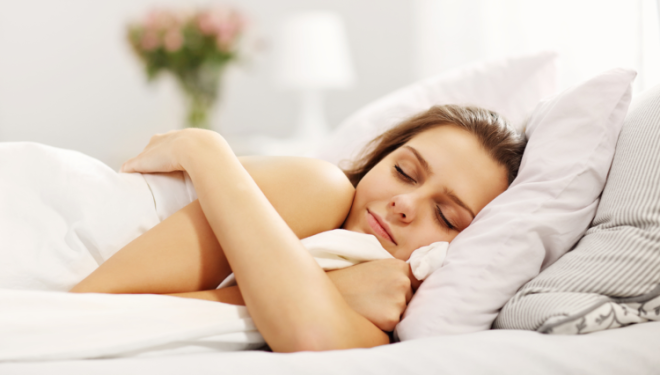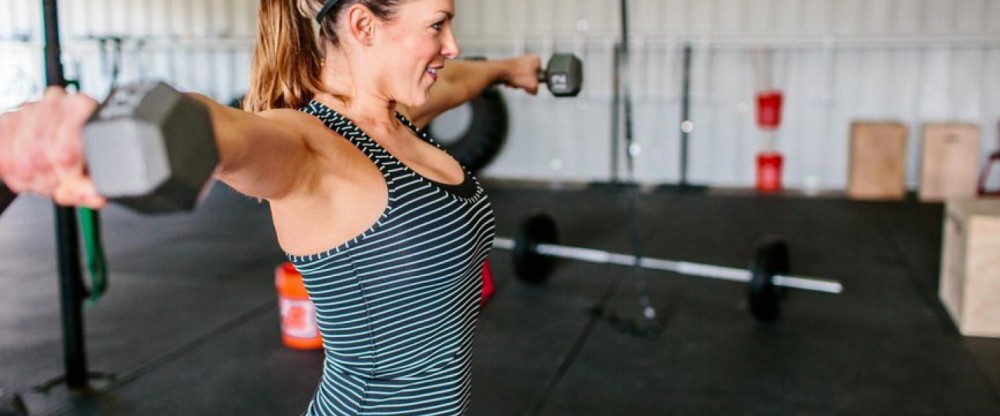The Best Time of Day to Exercise for Quality Zzz's

When it comes to sleep and exercise the jury is in: Working up a good sweat is an important ingredient for getting a good night's sleep. When it comes to the timing of that workout, it's a little more complicated.
AM cardio may mean more deep sleep
When you sleep at night, your blood pressure naturally dips by about 10 to 20 percent. That reduction is good for your heart, and may be one way that your body restores itself when you sleep. Some people with sleep apnea don't experience this nighttime drop in blood pressure, and, in general, it's linked with lower sleep quality. An early morning sweat session may provide the ideal blood pressure reduction, as well as maximize deep sleep, compared with midday or evening workouts.
Strength training at any time of day may improve sleep
Lifting weights at different times of day doesn't seem to affect nighttime blood pressure or the amount of time spent in different sleep stages. But there are a couple of key differences. Those who pump iron in the a.m. tend to fall asleep faster than those who work out later in the day. And those who prefer to do their bench presses or bicep curls at night wake up less frequently during the night and sleep better overall, compared with people who work out earlier in the day. The bottom line: Grab those weights whenever it works best for your day, and you'll snooze better for it.
Hard workouts might keep you up at night (or they might not)
An all-out workout is about as far from a calming bedtime routine as it gets. It raises your body temperature, speeds up your heart rate, and stimulates your nervous system. Exercising intensely too close to bed, for some people, can lead to interrupted sleep. But for other people, even vigorous exercise just two hours before bedtime has no negative effects on their sleep. One way of thinking about it: An evening workout could raise your body temperature similarly to a warm bath. Just like your body cools off post-bath, making you feel sleepy, a post-workout cooling may also help to set the stage for sleep. The bottom line: Experiment with working out at different times of the day and track your sleep patterns to see which camp you fall into.
Sleeping in can take a toll on your workout regimen (which takes a toll on your sleep)
It may seem obvious, but sleeping too late has a tendency to shrink exercise time. For every hour that you hit snooze past 7:30am, there's a significant drop in physical activity. And being less active means worse sleep in the night ahead—a negative cycle.That's one more reason to commit to a regular bedtime that allows you to get the sleep that you need—and get up energized to work out the next day.
The right head support can greatly improve how comfortable you feel in bed.Learn more about how these medical devices can make a big difference in nighttime comfort for people with breathing issues.Is pain keeping you awake? Find out why pain affects sleep and what you can do to sleep better.Sleep Apnea is a sleep disorder in which breathing is briefly and repeatedly interrupted during sleep. Learn how to cope...A frequent need to get up and go to the bathroom to urinate at night is called nocturia. It differs...Nearly one-quarter of all workers have shifts that are not during the daytime, and more than two-thirds of these workers...Have you ever wanted to know what happens to your body during menstruation? The latest infographic from the National Sleep...The Electronics and Sleep infographic highlights how technology affects the modern family and how parents can help design a sleep...Orexin receptor antagonists: A new class of sleeping pill Find out more about orexin, and a new type of sleep...Great news: more than three-fourths (76%) of those surveyed say that they had a good night’s sleep at least a...

Source: Internet
